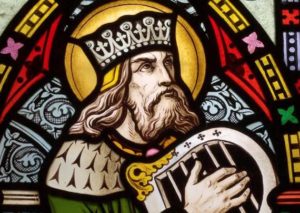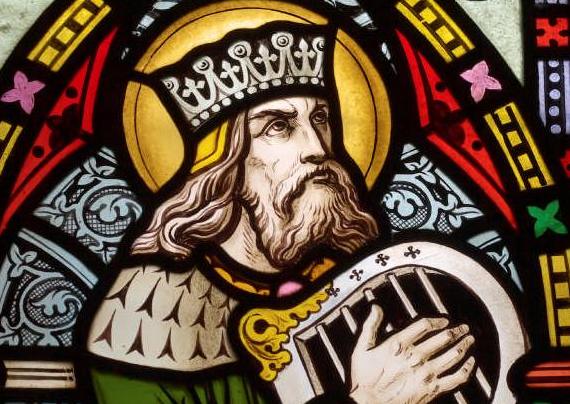The Grace of God in King David’s Graciousness
Podcast: Play in new window | Download
Subscribe: RSS
 TITLE: The Grace of God in King David’s Graciousness
TITLE: The Grace of God in King David’s Graciousness
SUBJECT: Grace
PROPOSITION: In this lesson, we will examine King David’s practice of grace to Saul’s house. King David’s graciousness showed that: 1) Grace was a Desire, 2) Grace was Proactive, 3) Grace Restores, 4) Grace Gives.
OBJECTIVE: Each person should learn what it means to be gracious to others and resolve to practice more grace in our lives.
INTRODUCTION:
1. Read: 2 Samuel 9:1-13
2. About the Text:
1) Saul’s envy made an enemy of David.
2) David, however, did not reciprocate Saul’s attitude.
3) In contrast, David’s attitude was so: “And he said to his men, ‘The Lord forbid that I should do this thing to my master, the Lord’s anointed, to stretch out my hand against him, seeing he is the anointed of the Lord.’” (1 Samuel 24:6).
4) After Saul’s death, David wanted to honor the house of Saul for Jonathan’s sake.
5) This is the substance of 2 Samuel 9.
3. Ref. to S, T, P, O, and A.
DISCUSSION: King David’s graciousness showed that . . .
I. Grace was a Desire (1).
1. This was something David wanted to do because of his relationship with Jonathan.
1) In spite of Saul, David and Jonathan had a wonderful relationship.
2) “Then Jonathan and David made a covenant, because he loved him as his own soul. And Jonathan took off the robe that was on him and gave it to David, with his armor, even to his sword and his bow and his belt” (1 Samuel 18:3-4).
2. David mourned over the death of Jonathan.
1) “Then David lamented with this lamentation over Saul and over Jonathan his son” (2 Samuel 1:7).
2) David sang of Jonathan: “I am distressed for you, my brother Jonathan; You have been very pleasant to me; Your love to me was wonderful, Surpassing the love of women” (2 Samuel 1:26).
3. It was because of David’s great love for Jonathan that he wanted to show grace.
4. Do we desire to show grace to others today?
1) Do we look at other people like God looks at them?
2) Do we love them like God loves them?
3) “But God demonstrates His own love toward us, in that while we were still sinners, Christ died for us” (Romans 5:8).
II. Grace was Proactive (2-6).
1. Grace doesn’t wait for others to come looking for us; it goes looking for them.
1) David found one of Saul’s servants, Ziba.
2) He asked him about the living relatives of Saul.
3) There was one left, Mephibosheth, who was lame in his feet.
4) He commanded that they bring Mephibosheth to the palace.
5) He came and fell down before David as his servant.
2. Grace values others.
1) Grace sees people as valuable.
2) Made in God’s image (Gen.1:27).
3) Redeemed by the blood of the lamb (2 Peter 1:18-19).
3. This is why grace seeks out and finds its object.
1) This is why Jesus tells the parables of the lost coin and lost sheep (Luke 15:4-10).
2) The Son of Man has come to seek and to save the lost (Luke 19:10).
4. Jesus is proactive.
1) “Behold, I stand at the door and knock. If anyone hears My voice and opens the door, I will come in to him and dine with him, and he with Me” (Rev.3:20).
2) “Therefore those who were scattered went everywhere preaching the word” (Acts 8:4).
5. Is our grace proactive?
III. Graces Restores (7-8).
1. Grace moves us from being un-favored to being favored.
1) Mephibosheth had lost everything when Saul and Jonathan died.
2) He was living in another person’s house.
3) He couldn’t take care of himself because of his lame feet.
2. Grace gives back to us what we have lost.
1) David restored all of Saul’s lands and servants to Mephibosheth.
2) This meant that Mephibosheth could have what was lost under Saul and Jonathan.
3. Jesus grace restores us to fellowship with one another and God.
1) “Therefore, if anyone is in Christ, he is a new creation; old things have passed away; behold, all things have become new” (2 Corinthians 5:17).
2) Ephesians 2:14-18.
4. Does our grace restore to others what they have lost?
IV. Graces Gives (9-13).
1. Grace goes above and beyond restoration.
1) David gave Mephibosheth a home in his house.
2) He gave him food from his own table.
3) David made him part of the royal court.
2. The grace of Jesus gives above and beyond what we can ask or think — “Now to Him who is able to do exceedingly abundantly above all that we ask or think, according to the power that works in us, to Him be glory in the church by Christ Jesus to all generations, forever and ever. Amen” (Ephesians 3:20-21).
3. God favors us with His presence in His Holy Spirit – “ in whom you also are being built together for a dwelling place of God in the Spirit” (Ephesians 2:22).
4. We are made to be kings and queens in the royal family of King Jesus – “And have made us kings and priests to our God; And we shall reign on the earth” (Revelation 5:10).
5. Does our grace go the extra mile?
CONCLUSION:
1. David understood that . . .
1) Grace is a Desire.
2) Grace is Proactive.
3) Grace Restores.
4) Grace Gives.
2. Invitation

